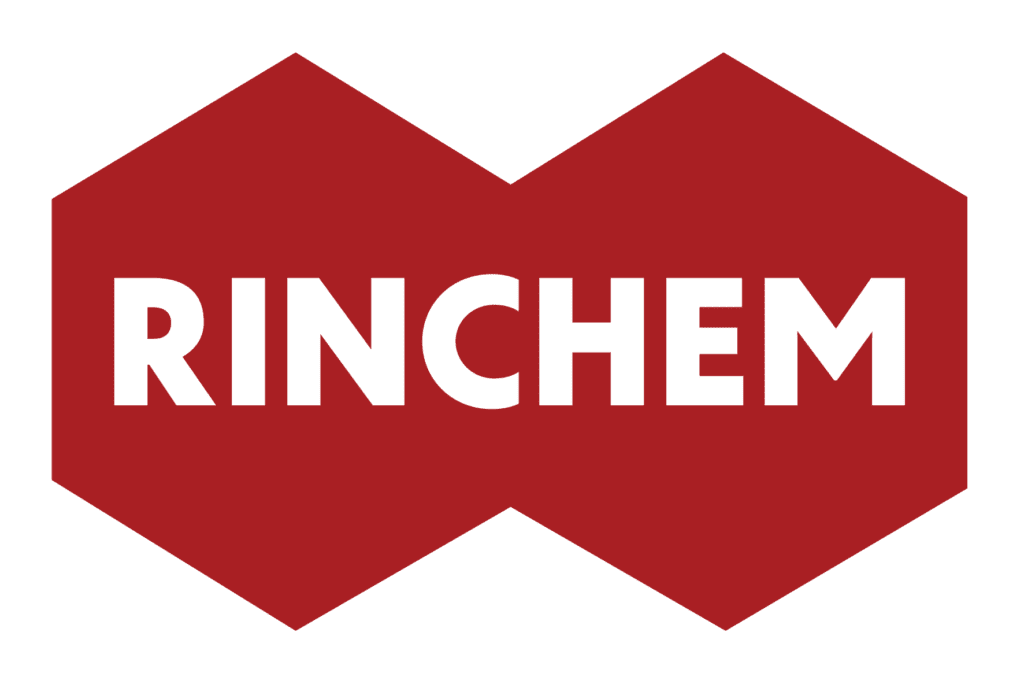The global movement toward sustainability has gained momentum as companies recognize the importance of reducing their environmental impact. As part of this shift, the Science Based Targets initiative (SBTi) has emerged as a leading framework for businesses aiming to achieve significant reductions in greenhouse gas (GHG) emissions. Rinchem Company, a global leader in chemical management solutions, is proud to announce that our SBTi targets have been officially approved. This milestone is not just a testament to our commitment to sustainability but also a strategic move to ensure long-term business resilience and environmental stewardship.
What is the Science Based Targets initiative (SBTi)?
The Science Based Targets initiative is a collaboration between the Carbon Disclosure Project (CDP), the United Nations Global Compact (UNGC), the World Resources Institute (WRI), and the Worldwide Fund for Nature (WWF). The SBTi provides a clear and scientifically backed pathway for companies to reduce their GHG emissions in line with the Paris Agreement's goal of limiting global warming to well below 2°C above pre-industrial levels, with efforts to limit the increase to 1.5°C.
The initiative offers companies a rigorous framework to set emissions reduction targets that are "science-based," meaning they are in line with the latest climate science and are designed to achieve a climate-safe world. Companies that commit to SBTi undergo a thorough process of setting and validating their targets, ensuring that their goals are both ambitious and achievable.

![]()
Key Elements of SBTi:
- Ambitious Targets: SBTi requires companies to set targets that are in line with what climate science says is necessary to meet the goals of the Paris Agreement.
- Comprehensive Coverage: Targets must cover all relevant GHG emissions across the company’s value chain, including scope 1 (direct emissions), scope 2 (indirect emissions from energy consumption), and scope 3 (other indirect emissions, such as those from the supply chain).
- Time-Bound Goals: SBTi encourages companies to set both near-term and long-term targets, ensuring that they are making steady progress toward their ultimate goal of net-zero emissions.
- Third-Party Validation: The initiative requires all targets to be independently validated by SBTi to ensure they are robust and aligned with climate science.
Why Should Companies Participate in the SBTi?
Participating in the SBTi offers numerous benefits for companies across industries and businesses play a critical role in reducing their carbon footprint. Here are some key reasons why companies should consider committing to SBTi:
- Enhanced Reputation and Brand Value: Consumers, investors, and other stakeholders are increasingly favoring companies that demonstrate a genuine commitment to sustainability. By setting science-based targets, companies can enhance their reputation and brand value, attracting environmentally conscious customers and investors.
- Regulatory Compliance: Governments around the world are tightening regulations on carbon emissions, and companies that set science-based targets are better positioned to comply with future regulatory requirements. This proactive approach can help businesses avoid potential fines and operational disruptions.
- Risk Mitigation: Climate change poses significant risks to businesses, including supply chain disruptions, resource scarcity, and increased operating costs. By reducing their GHG emissions, companies can mitigate these risks and enhance their resilience in the face of a changing climate.
- Cost Savings and Operational Efficiency: Reducing emissions often leads to greater energy efficiency and resource optimization, resulting in cost savings. Companies that invest in sustainable practices can reduce their energy consumption, lower operating costs, and increase their overall efficiency.
- Access to Capital: Investors are increasingly integrating environmental, social, and governance (ESG) criteria into their decision-making processes. Companies with science-based targets are more likely to attract investment from ESG-focused funds, gaining access to capital for further growth and innovation.
- Alignment with Global Goals: By participating in the SBTi, companies align their business strategies with global climate goals, contributing to the broader effort to combat climate change. This alignment can foster partnerships, collaboration, and innovation within industries and across sectors.
- Demonstrate leadership on climate change: By setting ambitious and credible climate targets, companies can demonstrate to their stakeholders that they are serious about addressing climate change. This can help to improve the company's reputation and attract and retain top talent.
Rinchem's Journey to SBTi Approval: Why We are Participating
We recognize that the chemical management industry has a significant impact on the environment, and we are committed to doing our part to reduce that impact. Our participation in the SBTi is a natural extension of our commitment to sustainability and a strategic decision to ensure our long-term success.
Our Approved SBTi Targets:
- Overall Net-Zero Target: Rinchem commits to reaching net-zero greenhouse gas emissions across our value chain by 2050.
- Near-Term Targets: We aim to reduce absolute scope 1 and 2 GHG emissions by 54.6% by 2033 from a 2022 base year. Additionally, we commit to reducing absolute scope 3 GHG emissions from upstream transportation and distribution by 32.5% within the same timeframe.
- Long-Term Targets: Rinchem is committed to reducing absolute scope 1, 2, and 3 GHG emissions by 90% by 2050 from the 2022 base year.
Why Rinchem is Committed to SBTi:
Rinchem is participating in the SBTi because we believe that it is important for businesses to take action on climate change. We are committed to reducing our greenhouse gas emissions and helping to create a more sustainable future.
- Leading by Example: As a leader in chemical management, Rinchem has a responsibility to set a positive example for the industry. By committing to science-based targets, we are demonstrating that sustainability and business success can go hand in hand.
- Supporting Our Customers: Our customers, particularly in industries such as semiconductors, pharmaceuticals, and solar, are increasingly prioritizing sustainability in their supply chains. By reducing our own emissions, we help our customers achieve their sustainability goals and strengthen our partnerships.
- Driving Innovation: Setting ambitious targets pushes us to innovate and develop new technologies, processes, and solutions that reduce our environmental impact. This innovation not only benefits the environment but also enhances our competitiveness in the market.
- Aligning with Global Standards: As a global company, we operate in regions with varying environmental regulations and expectations. SBTi provides us with a consistent and globally recognized framework for reducing emissions, ensuring that we meet or exceed regulatory requirements wherever we operate.
- Enhancing Resilience: Climate change presents a range of risks to our business, from supply chain disruptions to regulatory changes. By proactively reducing our emissions, we are enhancing our resilience and ensuring that we can continue to provide reliable and sustainable solutions to our customers.
- Fulfilling Our Corporate Responsibility: At Rinchem, we believe that businesses have a responsibility to contribute to the well-being of society and the planet. Our participation in SBTi is a reflection of our commitment to being a responsible corporate citizen and leaving a positive legacy for future generations.
What is Rinchem doing to achieve its SBTi targets?
Rinchem is taking a number of steps to achieve its SBTi targets. Here are a few examples:
- Investing in energy efficiency: We are investing in energy-efficient equipment and upgrades to our facilities.
- Reducing our reliance on fossil fuels: We are researching the transition to renewable energy sources, such as solar power.
- Improving our transportation and logistics: We are working to improve the efficiency of our transportation and logistics operations.
- Reducing our waste: We are reducing our waste generation and continuing our recycling efforts.
We believe that by taking these steps, we can achieve our SBTi targets and help to create a more sustainable future.
A Sustainable Future for Rinchem and Beyond
Rinchem's commitment to the Science Based Targets initiative marks a significant milestone in our sustainability journey. By setting ambitious, science-based targets, we are not only reducing our environmental impact but also positioning ourselves as a leader in the chemical management industry. As we move forward, we will continue to innovate, collaborate, and take bold steps toward achieving our net-zero goal by 2050.
The SBTi is a valuable tool for companies that want to take action on climate change. By setting ambitious and credible climate targets, companies can demonstrate their leadership on this important issue, reduce their financial risk, improve their operational efficiency, drive innovation, and contribute to a more sustainable future. Rinchem is proud to be a part of the SBTi and we are committed to achieving our targets.
More from Rinchem
Get more articles like this in your inbox
Sign up for our monthly newsletter
Find more articles


